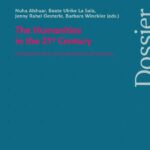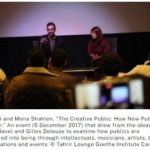Article originally appeared in openDemocracy:
http://www.opendemocracy.net/amro-ali/revolution-never-sleeps
 Egyptians may have been left with the dilemma of an Ahmed Shafiq-Mohamed Morsy reverse suicide pact (for the voter), yet the revolutionary forces’ tactical loss has been compensated by a strategic gain – their anointed candidate Hamdeen Sabahi vanquished his opponents in Alexandria in what could be a long-term game changer.
Egyptians may have been left with the dilemma of an Ahmed Shafiq-Mohamed Morsy reverse suicide pact (for the voter), yet the revolutionary forces’ tactical loss has been compensated by a strategic gain – their anointed candidate Hamdeen Sabahi vanquished his opponents in Alexandria in what could be a long-term game changer.
During the two day elections, I volunteered for Shayfenkom (‘We can see you’), an independent body that monitors voting irregularities. I overheard Sabahi’s name at every polling station I attended, including Muharam Bey, a traditionally Muslim Brotherhood base. If Sabahi could penetrate this heart of old Alexandria, then the city was sold to him before the results were out.
The election results were telling for the coastal city: Sabbahi: 34 per cent; Abdel Moneim Aboul Fotouh 22 per cent; Amr Moussa 16 per cent; Morsy: 15 per cent; Shafiq: 12 per cent. Minus other variables, it is a revolution in itself if a secular candidate can win over the so-called Islamist bastion of Alexandria.
So – what just happened to Alexandria?
According to Samuli Schielke’s brilliant take on the social sciences of the elections, Alexandria’s distance from the “government’s sight makes it a structurally oppositional city that suffers from neither the conservative inertia of the rural regions nor the vested interests and proximity to political power of the capital.” This arrangement has worked well for Islamists in past decades, but now it seems to work equally, if not better, for civil society forces.
Alexandria as it now stands is more or less divided into two camps as Schielke puts it. The liberal revolutionary forces dominate the political current in terms of ideological positioning and public opinion, while the Islamist current is stronger in terms of organisational power. So was the Islamist bastion more like an illusionist bastion? Not quite, the stage just became much more crowded in post-revolutionary Egypt and the Islamists have done themselves no favour by their mismanagement and theatrics in parliament. I wrote about this Islamist disorientation on the streets before the election in “The shock therapy moment in Salafi politics.”
Alexandria became known initially for the revolution’s poster-child Khaled Saeed, then for its ‘No’ Vote in the constitutional referendum, and now finally Sabbahi’s success has given rise to the expression ‘Revolutionary Alexandria’ in popular discourse. So perhaps it was not surprising that on the second anniversary of Saeed’s death, 6 June, the who’s who of the revolutionary movement showed up in Alexandria – Sabbahi, Abul Fotouh, Ahmed Harara, Khaled Youssef, and other prominent figures, including many familiar faces that I get to see in Tahrir upon my regular visits. Tens of thousands packed the Cornice as they made their mark in their newly acquired (or at least perceived) revolutionary stronghold. Even Tahrir rituals were imported onto the scenic beaches, as can be seen in this photo from one of my Tweets. Cairo revolutionaries, it seems, felt quite at home with the welcome they received (plus for some, maybe the chance to pursue the traditional practice of escaping the Cairo summer heat).
Meanwhile, home-grown liberals have begun to display somewhat emboldened behaviour in street politics that is sometimes ferocious, as this video shows of pro-Sabbahi supporters going on the rampage and tearing down Morsy posters, that I shot from my balcony. Protests have been happening every single day since the election results with no let up.
[youtube]http://www.youtube.com/watch?v=KTXus7-y7xA&feature=relmfu[/youtube]
The challenge for a Morsi or Shafiq presidency could well be how to gain legitimacy in the city known as the vanguard of the country in terms of its socio-political dynamics. Also across Egypt’s urban centres, the duo’s popularity is very low and public suspicions are running high both at the felol (regime remnants) and the Muslim Brotherhood, as well as the dubious electoral process in rural areas that won it for Morsy and Shafiq. For either of the two, it could turn out to be a case of winning the battle, but losing the war.






